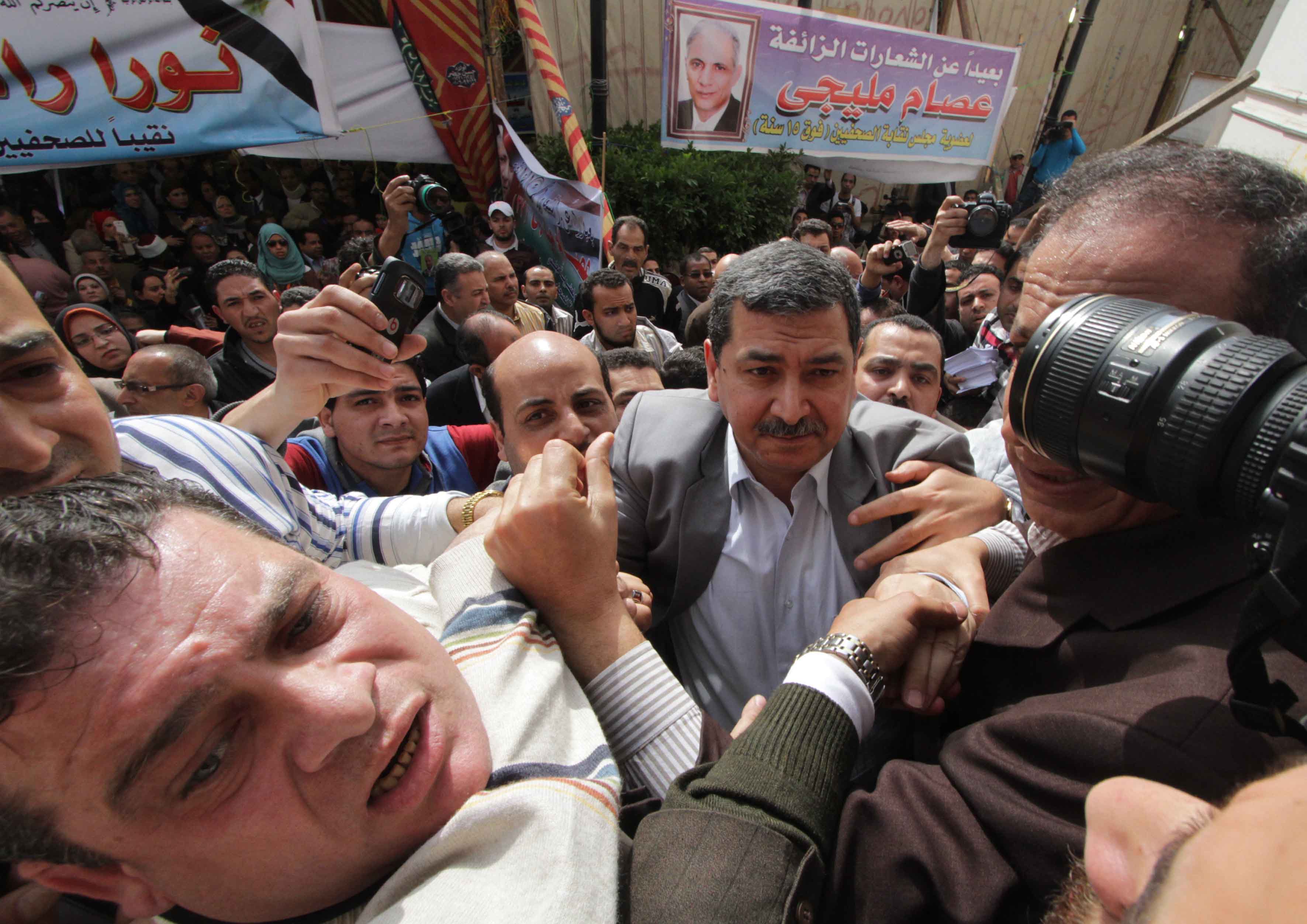
The Event changed everything.
Nobody knows the exact date when the event started. The chaos that took place once it started, and its insane aftermath, made any kind of accurate documentation impossible, but we know that it reached Cairo around August 2013, specifically around the Eid vacation. In its aftermath, Egypt found itself on the brink of anarchy. Some people went as far as believing that we had reached the end of days, but as always, they were wrong. Over half of the country’s men were dead by the end of the year, but the world didn’t end. Life went on.
It started as a body chill and slight nausea, and by the time you started breaking sweats, it was already too late. Pathophysiology experts were dumbfounded by this mutated version of the Yersinia pestis bacterium that only infected people with Y chromosomes, resisted all vaccines, was transmitted by touch, and killed you in four days. The Eid outbreak downtown (known by western experts as “ground Zero”) was catastrophic and unstoppable. Men were dropping like flies. The government wasn’t in any financial or operational shape to properly treat the infected or effectively quarantine them. In the name of national security, the military declared martial law and killed anyone who seemed infected. Gripped by fear, people barricaded themselves in their houses and turned a blind eye to “Operation Necessary Cleansing”, as the government called it. But even the government wasn’t immune.
The military and the police took heavy losses, and the majority of the cabinet, alongside with the President, couldn’t be saved. Infected protesters, believing themselves to be as good as dead, swarm-attacked the presidential palace and government buildings, and infected everyone around them. By the time the WHO came up with the cure, and an international campaign was created to fund Egyptian vaccination, it was already too late. Out of the 40 million Egyptian men, 22 million were dead. No accurate numbers were provided regarding the survival rate of the millions of illegal male refugees in Egypt, but we do know that very few survived.
After the event was over, life had to go on. But the forces that remained of Egypt’s government and political system were suddenly facing a new demographic reality: Egypt was suddenly 75% female, outnumbering men by a three to one ratio.
A presidential council was created from the remaining male politicians and the few female ones. New challenges required new priorities, and thus new legislations. Abortion was banned. A new law drafting females into the armed forces and the police took effect immediately, if only for jobs that didn’t require physical confrontation. The unemployment rate plummeted, as the demand for workers outweighed the supply. In no time women were driving buses, trains and taxis, and taking over male jobs in factories and farmland. Economists hailed the fact that the poverty levels were dropping due to the need for workers, while ignoring the death of millions of Egypt’s most impoverished due to the government’s negligence (and sometimes bullets) as an uncomfortable statistic. Their tragedy was swept under the carpet when economic reports hailed that Egypt’s resources were suddenly sufficient for its citizens.
The government was pressured by the few remaining religious leaders, who in the wake of the event and the rampant religiosity it sparked became more prominent in stature, to issue a law forcing Muslim men to marry four women, which was fought by both married and single women and men. A compromise was reached by creating the “Positive Coupling Act”, which financially rewarded men for engaging in polygamy. Interfaith marriage was no longer an issue; the new reality forced Muslim and Christian parents to approve of any marriage they could arrange for their daughters. An Egyptian immigration and citizenship law was hastily approved to allow only men who married Egyptian women a path to citizenship. A new Lineage law allowed unmarried women to issue birth certificates for their children. The law was heavily protested by religious groups, but utilising the national security trump card, it passed. For the first time ever, we needed babies.
A new sector that experienced insane growth was human fertility clinics, which not only offered artificial insemination, but the promise to select the sex of the baby in advance. A spike in artificially inseminated baby boys followed, coupled with an equal spike of the Egyptian version of the China syndrome; in impoverished areas, baby girls were killed the moment they were born. The expected sexual liberation of women saw an increase in hijab by females who wanted to distinguish themselves as pious and moral (see: virgin) in hopes of snagging a husband of their own. Sexual harassment decreased in volume, but didn’t vanish, with the few remaining males given a free pass by society because of how few they were. Male rights groups emerged, and almost passed a law (supported by many females) that would give male votes twice the voting powers as female votes in the name of equality, because “Sharia allows it”. Female homosexuality was almost fully socially accepted, but no such luck for male homosexuals, who were arrested and forced into marriages to ensure the end of their “reckless and irresponsible behavior in the light of the current crisis”. National security demanded it.
Despite the loud noise that men’s rights groups were making, most men were adjusting rather nicely to the new reality. The Affirmative Action Act of 2014 ensured that they would have to occupy half of the management positions in any private company or government institution. Those who engaged in polygamy had wives that financially supported the household, alongside with government money for each wife and baby. Those who didn’t get married became prized targets and literally had their pick of the litter. Male prostitution thrived. Women took over leading positions in all sectors, but men retained most of the power, because a huge number of women longed for the old days of male control, and wanted to believe that things would eventually go back to the way they were. Half of the men were dead, but patriarchy was still alive and well in Egypt, thanks to its unwavering female guardians. When the first presidential election took place after The Event, a man was announced the winner. Half of the feminist activists in Egypt suffered nervous breakdowns; some committed suicide.
Some things never change.




